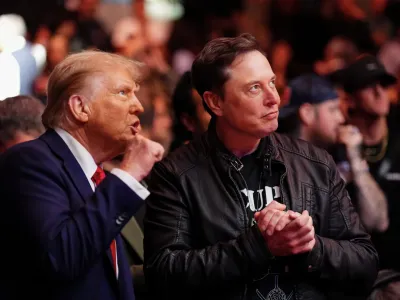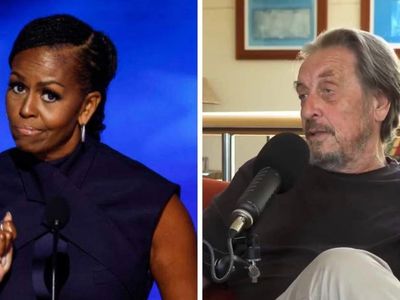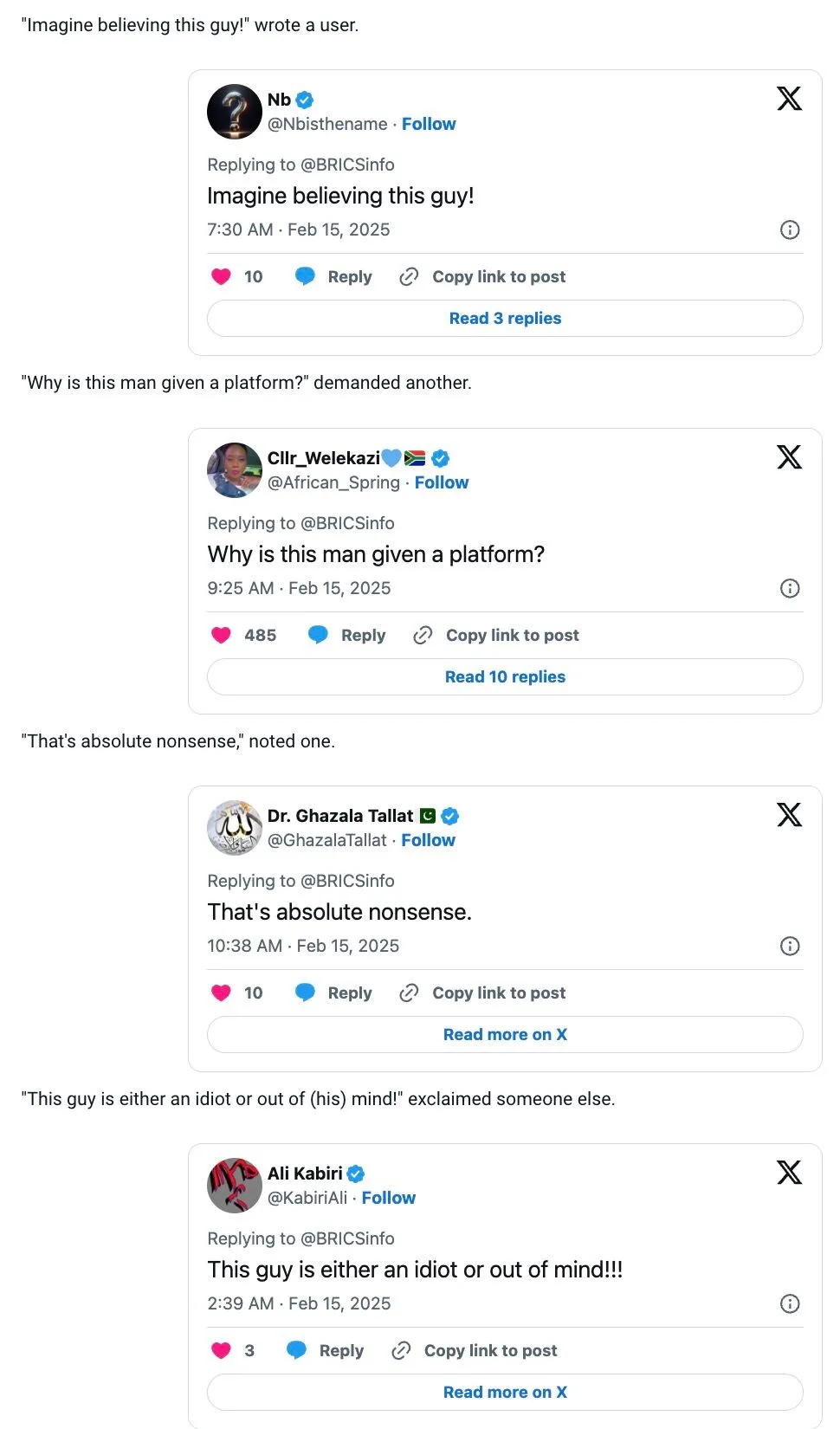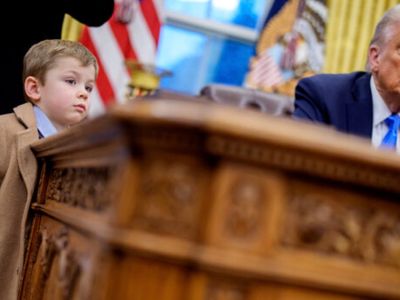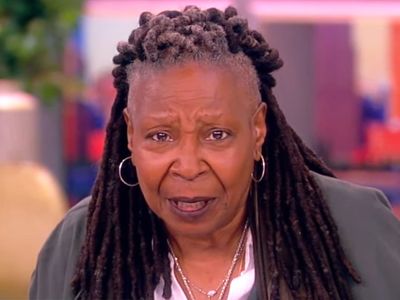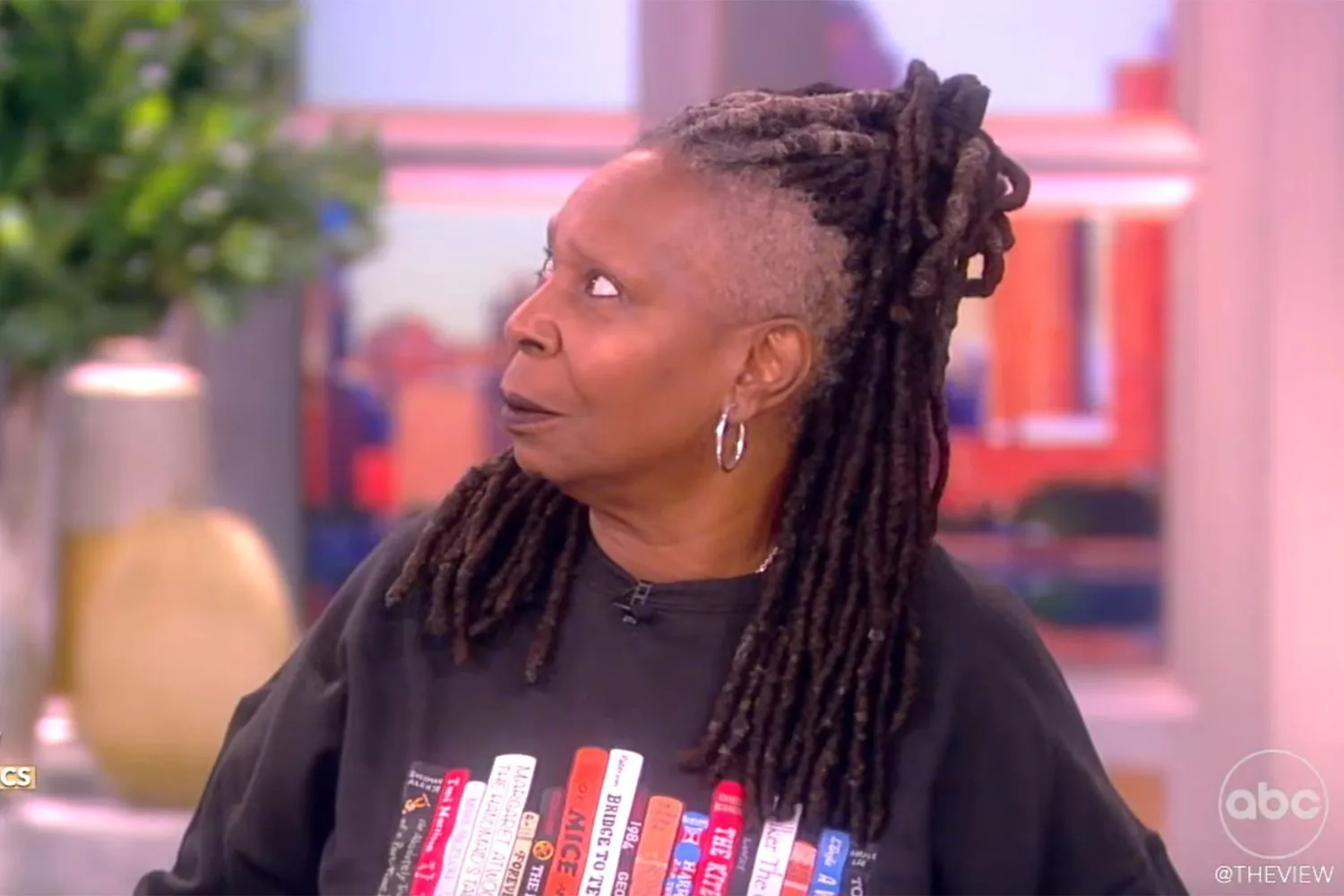Elon Musk speaks out after controversial salute accusations
Elon Musk has addressed allegations stemming from a gesture he made during the inauguration ceremony for Donald Trump, with some critics claiming it resembled a “Nazi salute.”
On Monday, January 20, Donald Trump was formally sworn in for his second term as President of the United States. The event, filled with grand promises for the coming four years, quickly became a focal point of public discussion.
As with most high-profile events, the inauguration drew significant attention for various reasons. While some observers focused on First Lady Melania Trump’s choice of attire—particularly her hat—others commented on the striking resemblance between Vice President J.D. Vance’s daughter and her father. However, it was Elon Musk, the CEO of Tesla and founder of SpaceX, who arguably became the center of an online uproar.
In the lead-up to the inauguration, Musk had been vocal on his social media platform, X (formerly known as Twitter), where he publicly supported Trump’s campaign efforts. On the day of the ceremony, Musk attended an event at the Capital One Arena in Washington, D.C., before the Inauguration Day parade.
During his address, Musk delivered a passionate speech about humanity’s future in space exploration. He highlighted ambitious plans to send the first human mission to Mars and proudly plant the American flag on the "Red Planet." However, what followed sparked significant backlash.
At the end of his speech, Musk made a gesture by striking his chest and thrusting his right arm upward. He then expressed gratitude, saying, "Thank you for making it happen. Thank you, my heart goes out to you," before turning toward the crowd and repeating the gesture, this time directing it at the American flag.
The gesture drew immediate comparisons to historical salutes associated with authoritarian regimes, leading to widespread criticism online. Kasie Hunt, a CNN anchor, remarked that Musk’s action was “not something you typically see at American rallies” and noted its resemblance to historical gestures with troubling connotations.
On X, reactions poured in, with many users accusing Musk of mimicking a Nazi salute. Some described the act as a blatant “Sieg Heil” while others labeled it an inappropriate display of enthusiasm. The controversy quickly gained traction, with opinions sharply divided.
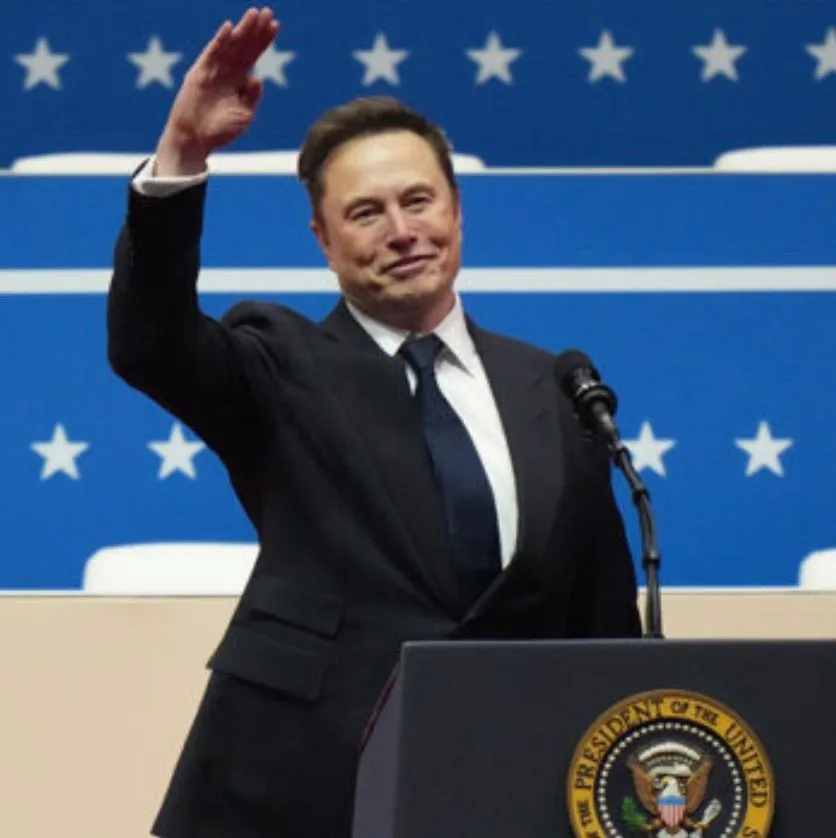
In response to the backlash, the Anti-Defamation League (ADL), an organization dedicated to combating antisemitism, issued a statement defending Musk. They suggested that his actions were likely an awkward and unintentional gesture, saying, "It seems that [Musk] made an enthusiastic yet clumsy movement, not a Nazi salute. However, we understand why people may feel uneasy."
The ADL continued, emphasizing the importance of fostering unity during such a politically charged time. “This is a sensitive moment. Emotions are high, and tensions are running deep. Social media often exacerbates these divisions. We urge everyone to exercise patience and give one another the benefit of the doubt as we embark on this new chapter.”
Not everyone agreed with the ADL’s defense. Congresswoman Alexandria Ocasio-Cortez was among Musk’s critics and openly condemned their response. She stated, “To be clear, you are defending a gesture that looks unmistakably like a Nazi salute, repeated intentionally for emphasis. This undermines your credibility as an authoritative voice against hate.”
Musk later responded to Ocasio-Cortez’s comments by dismissing her concerns, claiming she had “completely lost her mind.” His remarks only added fuel to the online debate.
Another X user chimed in, urging people to move past labeling individuals as Nazis. “Can we retire this narrative already? Calling everyone a Nazi has lost its impact. It’s overused, ineffective, and honestly, people have stopped caring. You’ve cried wolf too many times.”
Musk agreed, replying with a “yawn” emoji and adding, “Honestly, they need to come up with better tactics. The ‘everyone is Hitler’ argument is so outdated.”
The incident has reignited discussions about public figures, the impact of their actions, and the role of social media in amplifying controversies. While some view the gesture as a simple misunderstanding, others remain firm in their criticism, seeing it as emblematic of deeper societal divides. As this debate continues, Musk’s remarks and the varying reactions to them reflect the polarized nature of public discourse in today’s digital age.
